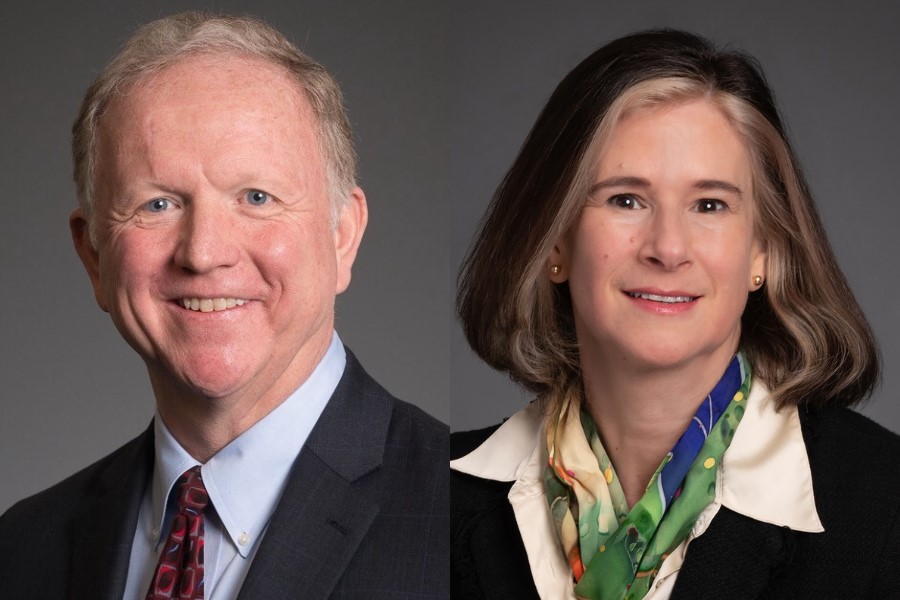

For many registered investment advisors, fiduciary duty is essential when acting in the best interests of clients.
Doing so means they operate from a position of trust and confidence. All aspects of how independent advisors conduct themselves “need to be pointed in that direction,” says Blaine Aikin, founder of Fiduciary Insights.
“Diligence and care are key,” Aikin says. “Whenever you think of conflicts, or you think of it in the way of duty of loyalty, you have to be a prudent professional. You have to know exactly what the client is looking for and how to deliver it. It's a very comprehensive profession full of professional obligations.”
To help with these obligations, the Certified Financial Planner Board of Standards Inc. offers plenty of resources, from case studies to checklists and cartoons, says Liz Miller, founder and president at Summit Place Financial Advisors.
“If we're trying to only follow the SEC rules, sometimes it can be confusing, particularly if you have no professional help to interpret it and give you guidance,” Miller says. “As a CFP professional, I am always working under that fiduciary standard, and I really appreciate all the resources that don't make it complex, that can answer my questions when I have them and provide resources if I'm unsure.”
Both Aikin and Miller will be participating on fiduciary care panel at the upcoming InvestmentNews RIA Connect New York conference on April 16, where others will also take the stage to highlight key trends in the RIA space. Joe Duran, executive managing director at Rise Growth Partners, will be the keynote speaker at the event.
Aikin notes that RIAs have been on the path to greater fiduciary responsibility and what he calls “the true professionalization of financial advice for some time.
“That is going to be a continuing thing,” he says. “As we talk about the professionalization of advice, I think the main channel is going to be in financial planning. That’s where we will see financial planning recognized as a true profession, in the classic sense, before you start to get into what I would call the disciplines, [like investment advice], so I do think holistic advice is going to be extremely important.”
Miller said that most advisors are already thinking about their clients and making every financial decision in their clients’ best interests every day.
“We all have different kinds of business models that are always going to have some sort of potential conflict of interest, and that doesn't make any of those models bad models,” she says. “No matter how you’re paid, and no matter what your model is as a financial advisor, you can still always put your clients first and act in their best interests as a fiduciary.”
Part of that, Miller added, comes down to understanding what the steps are to make sure you're still being a fiduciary under all the different models that are out there.
As many advisors make the switch from broker-dealers to independent firms, RIAs should also be aware that it's going to be increasingly difficult to set themselves apart, Aikin added.
“You need to think carefully about being the best professional you can be and be able to set yourself apart from among your peers, not just from those who shouldn't be competing directly against you, but also from a sales side,” he said.
An increasing number of Americans want to work with advisors who will work in their best interests, Miller noted, and even understand the word “fiduciary,” and are looking for it.
“It's going to really drive our business and it's going to be a differentiator for us to be able to confidently and calmly say, ‘Of course I work in your best interest. Of course my business model includes me being a fiduciary,’” she said.
Registration for the RIA Connect New York event, which includes a special advisor rate, is ongoing. See the full agenda and speakers here.

By listening for what truly matters and where clients want to make a difference, advisors can avoid politics and help build more personal strategies.

JPMorgan and RBC have also welcomed ex-UBS advisors in Texas, while Steward Partners and SpirePoint make new additions in the Sun Belt.

Counsel representing Lisa Cook argued the president's pattern of publicly blasting the Fed calls the foundation for her firing into question.

The two firms violated the Advisers Act and Reg BI by making misleading statements and failing to disclose conflicts to retail and retirement plan investors, according to the regulator.

Elsewhere, two breakaway teams from Morgan Stanley and Merrill unite to form a $2 billion RIA, while a Texas-based independent merges with a Bay Area advisory practice.
Orion's Tom Wilson on delivering coordinated, high-touch service in a world where returns alone no longer set you apart.
Barely a decade old, registered index-linked annuities have quickly surged in popularity, thanks to their unique blend of protection and growth potential—an appealing option for investors looking to chart a steadier course through today's choppy market waters, says Myles Lambert, Brighthouse Financial.
